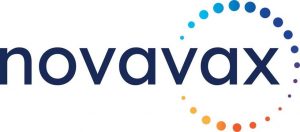
How Biotech and Life Science Startups Can Embrace Digital Technology to Get Ahead
By Adam Sandman, Founder of Inflectra
July 31, 2023
| BioBuzz is thrilled to welcome guest posts and contributing writers to the “hive.” Enjoy the read from one of our expert contributors and be sure to get in touch if you have an idea or perspective you’d like to share. We’d love to buzz about it to see if it’s a fit! |
Whether they are building a new healthcare IT system from scratch or a groundbreaking medical device, many biotech and life science startups need easy-to-use tools specifically designed to help streamline agile projects and/or manage the entire software lifecycle.
But an intuitive solution in and of itself isn’t enough either. These solutions and tools must also fit the company’s changing needs as it grows. For example, once a startup enters the clinical trial phase, it will inherit a whole new set of compliance issues that go along with validation, which need to be addressed quickly. This significant amount of testing and validation requires a complex development process and workflow—all of which must done while keeping patient safety top of mind.
While many life science companies are embracing digital technology for medical devices, pharmaceuticals and e-Health projects, they need to be sure, when developing systems like this, that the technology follows good manufacturing practices, such as GxP.
Obviously, for systems that streamline medical device production or anything else entering a clinical or human trial, those systems must also be tested according to the FDA 21 CFR Part 11. Similarly, anything involving patient data must comply with the very strict HIPAA rules or GDPR in Europe.
Agile, real-time methodologies that deliver solutions faster are also increasingly important when using software for e-Health products—especially because the corresponding paperwork, rules and validations have not, unfortunately, caught up with the times and all of the changes that have come with them. There is also a move away from Clinical Software Validation (CSV) to Clinical Software Assurance (CSA) that needs to be taken into consideration when selecting a software management solution for e-Health products. This is primarily due to the move toward more cloud-based programs that require a more continuous validation process rather than one-off validations.
What does all this mean for biotech and life science startups? Three key things:
- They need ready-to-implement tools that are easy-to-use and agile, but also ready for clinical trials and validation.
- They need to ensure they remain compliant when cloud tools update monthly; and
- They need to confirm patient data is always protected and HIPAA- and/or GDPR-compliant.
Below are a few examples of companies that have successfully implemented solutions such as these to help them synchronize agile program development and streamline their operations.
- Leica Biosystems, an international medical devices company that develops and supplies clinical diagnostics to the pathology market, found a central platform to manage all of its projects, requirements, testing, and development. It found a robust solution that did all this while also enabling end-to-end traceability across its various groups worldwide.
- McKesson, an American company that delivers a third of all pharmaceuticals used in North America and employs over 78,000 employees, found a solution to replace its old ALM platform with something more modern and agile, which embraced continuous testing and test automation.
- A major medical device company needed a tool to help the brand design, develop, test, and validate a new heart monitor as quickly and efficiently as possible. The heart monitor had onboard software and systems in addition to an embedded system.
- Several large pharma companies have also used solutions to help streamline their various systems and act as a primary lifecycle management solution for hardware, software, and “wetware” platforms and products. These include managing IT systems in factories, procurement systems, drug manufacturing, and basic collaboration and communication tools. Whether it’s for vendor, asset, or IT management, everything must be validated and streamlined for these pharma giants, which is no simple task without a ready-built solution.
Whether a company is an established pharma industry legend or a life science startup in the space, finding the right IT solutions for continuous testing and validation will help manage and comply with complex and shifting regulatory requirements.
- About the Author
- Latest Posts
BioBuzz is a community led, experience focused, biotech and life sciences media and events company. BioBuzz highlights regional breaking news, industry professionals, jobs, events, and resources for business and career growth. Their weekly newsletter is subscribed to by thousands in the BioHealth Capital Region and Greater Philadelphia as the go-to for industry updates.




